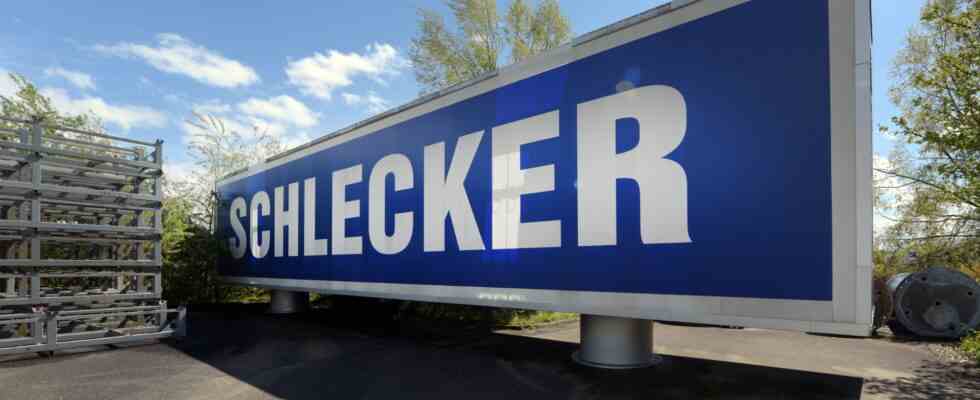Status: 07/03/2022 7:37 p.m
The Schlecker insolvency in 2012 was one of the largest company bankruptcies in Germany. Now former employees of the drugstore chain should still receive money – but probably manageable sums.
Helga Bandow worked for Schlecker for 25 years. The 70-year-old Hessin was most recently employed as deputy branch manager. The closure hit her hard at the time. “We were all pissed.”
The other day she got mail from the Schlecker insolvency administrator. “I was completely surprised to hear something about the case again,” says the woman from Gladenbach.
Suppliers and craftsmen get nothing
But the letter was disappointing. She is said to have received a transfer of 250 euros in July – no more than “unexpected pocket money”. Among other things, it is about claims of former employees from wages, Christmas and holiday bonuses.
Creditors such as suppliers and craftsmen, on the other hand, get nothing. This is still about claims for damages in the hundreds of millions. The family has now repaid ten million euros to the insolvency administrator. The background to this is cartel agreements between suppliers, which would have led to Schlecker having paid excessively high prices in the past. “We took civil action against this. It’s a lengthy process involving several instances,” said insolvency administrator Arndt Geiwitz.
According to Geiwitz, he is preparing total payments of 21.3 million euros. The so-called “Schlecker women” will only get a small part of this. The former employees cannot expect more than a few hundred euros.
Expansion course led to bankruptcy
Schlecker, once the largest drugstore chain in Europe based in Ehingen in Baden-Württemberg, filed for bankruptcy in January 2012. The trained master butcher Anton Schlecker from the small town of Ehingen near Ulm opened his first drugstore in 1974. Only three years later there were already 100 branches.
Anton Schlecker had to live with criticism from the start. His chain paid less than the collective bargaining agreement, and they prevented the establishment of a works council. On the other hand, Anton Schlecker was held in high esteem for being liable for his company with his private assets.
In addition, he wanted more and more shops, to keep growing. But the customers stayed away. The shops were too small, too old and unattractive. There was not enough money for modern conversions.
The decline of the empire became apparent six months before the bankruptcy. In June 2011, Schlecker announced that it would close around ten percent of its more than 8,000 branches. The reason: they are no longer economical. Then in 2012 bankruptcy. The once largest drugstore chain in Europe could no longer be saved and disappeared from the market. Around 24,000 employees lost their jobs at the time.
Anton Schlecker remains at large
In 2017, Anton Schlecker was sentenced to a two-year suspended sentence for willful bankruptcy. In the knowledge of the impending bankruptcy, he had put money away, the court ruled.
When it came to breaking the news of the bankruptcy, he sent his children Lars and Meike ahead. At a press conference, the daughter announced that there were “no significant assets left”. It later turns out that the family had saved millions more. The allegations are of bankruptcy and breach of trust. The father gets away with a fine, the children have to go to prison – the sentence is two years and seven months. They will be released early in June 2021.
The Schlecker trial at the Stuttgart district court in 2017 cost more than 200,000 euros. The public prosecutor’s office in Stuttgart shared this on request tagesschau.de With. The costs must be paid by the convicted defendants. A spokeswoman for the regional finance department in Karlsruhe did not want to confirm whether this has already happened.
The bankruptcy proceedings drag on
The remaining claims of the former employees continue to exist. Health insurance companies, social insurance companies and the Federal Employment Agency have also made demands. According to Gallwitz, however, one can only say at the end of the insolvency proceedings whether and to what extent further payments are possible.
At the moment he assumes that the process will be completed in two to three years. And maybe Helga Bandow will get another letter from the insolvency administrator.

